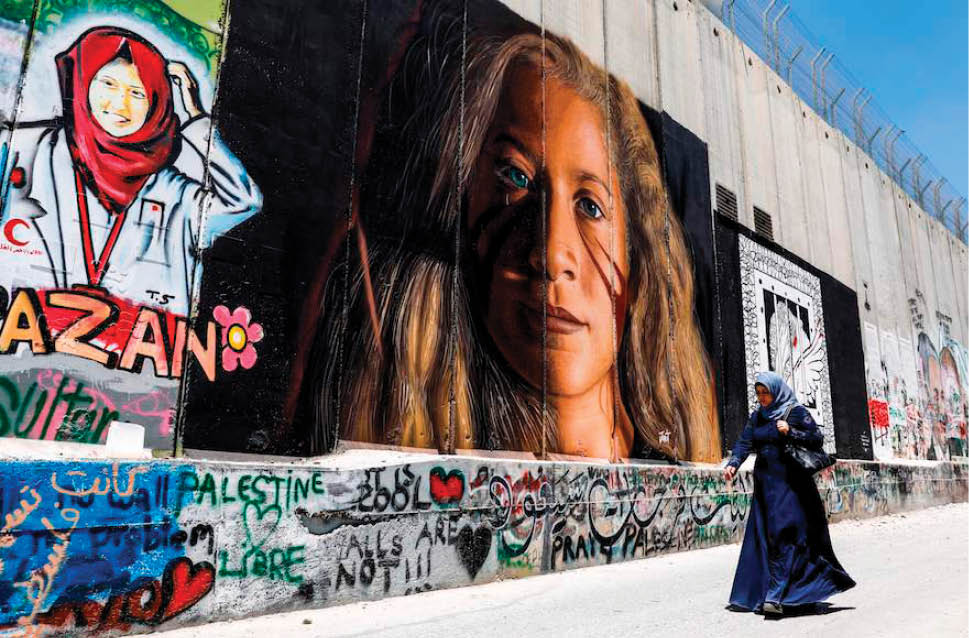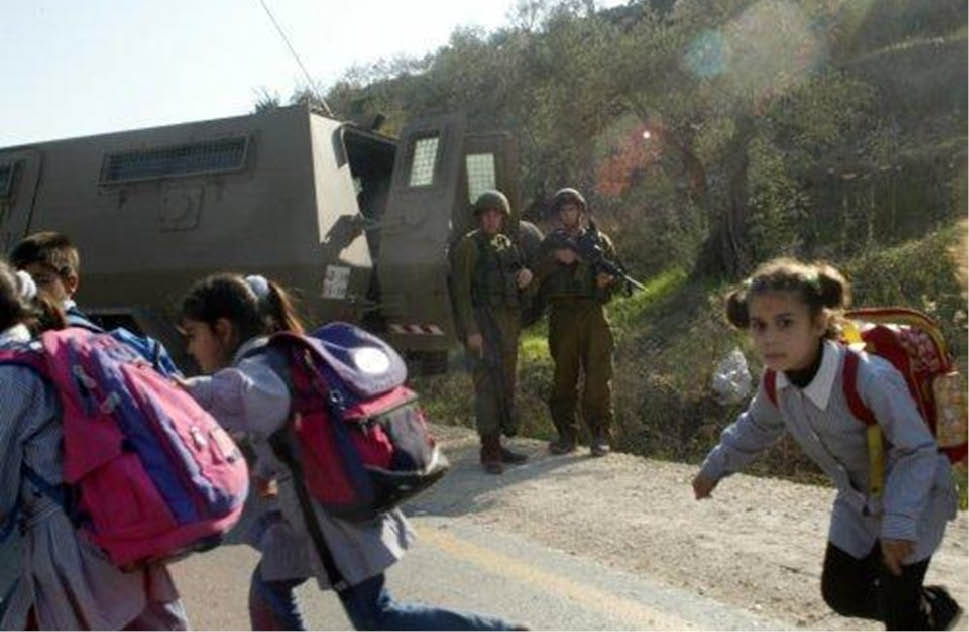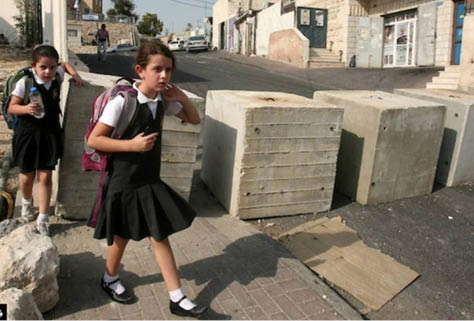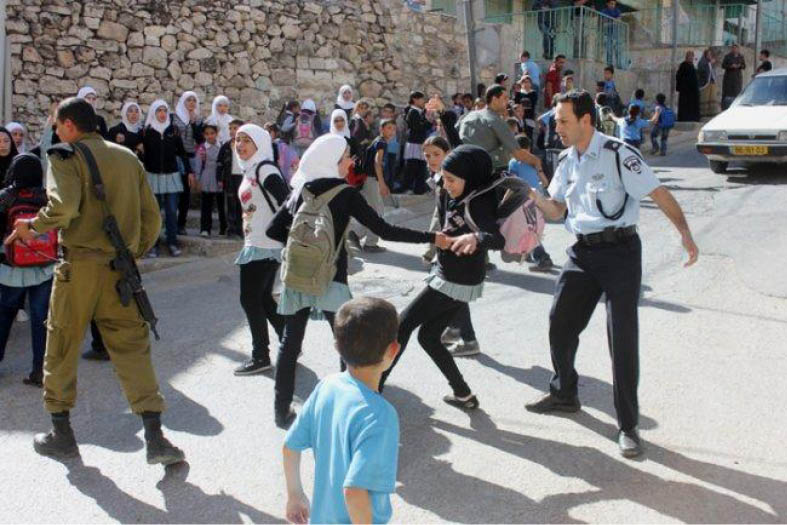When in 1967 Israeli occupation forces illegally annexed East Jerusalem, the Israeli government imposed permanent residency status on the Palestinian population that lived in East Jerusalem, a status that can be revoked at any time by the Israeli Ministry of Interior. To maintain this residency status and be allowed to live in Jerusalem, however, Palestinian Jerusalemites must continuously prove that Jerusalem is “the center of their lives.” Essentially, this means that they have to live, work, and reside only within the borders of Jerusalem. This policy is designed primarily to change facts on the ground and forcibly transfer Palestinians in order to maintain a demographic majority of Jewish Israelis in the city.*1
Due to their residency status, Palestinian Jerusalemites enjoy fewer rights than Israeli citizens and are subject to discrimination by the Israeli state. The consequences have repercussions that particularly impact the lives of girls and women in the affected area, yet to fully understand their situation in this context, an understanding of the complex nature of Palestinian society is essential. Palestinian society remains patriarchal, ruled by traditions, and based on false stereotypes about women, even though various feminist and human rights organizations have made remarkable efforts towards change over the past few decades. The combination of the occupation and the patriarchal nature of their society leaves Palestinian women and girls faced with double jeopardy.
Research conducted by the Women’s Centre for Legal Aid and Counselling (WCLAC) and the Human Rights Clinic at Yale University has found that Palestinian girls and women in Jerusalem face many restrictions and barriers and are exposed to violations, for example, when it comes to their access to education. First, Palestinian girls and women experience violence on their way to school and at school, carried out by Israeli settlers and by Israeli occupation forces. The women and girls interviewed for the research mentioned above explicitly voiced that the experience of such violence contributes to anxiety and trauma and has made it difficult for them to focus on their studies, even discouraging them from continuing their education.

This was the case with B.J., a 21-year-old mother of two who decided to drop out of school and married early after witnessing a catastrophic incident of violence committed by Israeli occupation forces. She explains: “In 2015, twelve bullets were fired at a student in my school as she was leaving for the day. She was in eleventh grade, and her name was M.B. She was shot following a false claim that she was trying to stab a settler. Even though she was injured, she was sentenced to eight years in prison. After that, my parents and I were worried about my safety both on my way to and at school. Initially, my father did not allow me to attend school for about two weeks. Then, I refused to go to school and decided I wanted to stay at home and not finish my education. I was soon engaged to be married. My parents encouraged my marriage because I did not finish school.”*2
Second, reinforced by enduring patriarchal attitudes, many parents do not permit their daughters to attend school and keep them at home during clashes with Israeli occupation forces because they feel that they must protect their daughters more from occupation-related violence than their sons. Some parents are afraid whenever their daughters are required to cross checkpoints or pass places where soldiers might confront them. Patriarchal attitudes are ingrained to the extent that they are imposed not only by males on females but also by females on other females, as they have become the tradition. For example, in testimonies collected by WCLAC, a mother from Al-Issawiya stated that she would allow her daughter to obtain a university degree only at Hebrew University, as it is located near Al-Issawiya village. “I am concerned for her safety, especially when she attends Palestinian universities. Not only would she have to cross checkpoints and might get home late due to the heavy traffic we find at checkpoints, but also, I’m scared that something might happen to her when she crosses the checkpoint. I want her to get good grades so she can apply to Hebrew University, which is closer. There, her dad can pick her up with the car if needed,” she explained. These concerns restrict girls’ options and freedom of choice.

Deeply rooted patriarchal attitudes that are reinforced by occupation-related concerns affect another 50-year-old mother from Al-Issawiya village who says, “I want my daughters to attend a school that is near our house, so I don’t have to worry about them going to school and coming back. Israeli occupation army and police are everywhere and sometimes open checkpoints at the entrance to our village to search the people who go in and out. My daughters won’t be safe; they are girls. I have no problem if my sons want to study outside the village, but the girls are weaker than the boys.” Her sons were allowed to attend school in Beit Hanina and study at Bethlehem University, both located further away, even though she expressed awareness that “boys are more at risk of experiencing violence from Israeli occupation forces.” She explained, “But my sons do not make any trouble and avoid any contact with them.” Nevertheless, she said, “I told my 17-year-old daughter who wants to get a bachelor’s degree in history and geography that I will accept this only if she is admitted to Hebrew University. It is safer because it is closer to Al-Issawiya. The roads [to Palestinian universities] are not safe with all the checkpoints.”
These cases are, however, not the rule because generally, the education of girls and women is highly valued in Palestinian society and perceived as the only way a woman can achieve her financial independence. This is contrary to what some segments of Palestinian society expect of a man, who is regarded as not requiring education to achieve economic independence. A teacher at Al-Issawiya Secondary School for Girls stated this view by saying, “A young man can just quit school and work in anything to get money.”*3
Despite the general encouragement for girls and women to pursue their education, early marriage remains a prominent feature in Palestinian society. As explained by D.A., another teacher at the school, “Early marriage is a huge problem. Some students cannot get the idea out of their minds. I feel that they sit in the classroom thinking about marriage. It is not always the family’s fault. It is just what society expects from girls after a certain age.”*4
Thus, occupation-related practices and the associated violations further serve to entrench misogynist attitudes and phenomena in Palestinian society. Many women and girls experience barriers when accessing education; they are subjected to numerous schemes of oppression that include checkpoints, humiliating searches, harassment by settlers and soldiers, and hours of delay when trying to reach school. These factors contribute to making it more tempting for them to end their educational journey and seek an early marriage.

The situation is similar in the West Bank, especially in the rural areas and seam zones. For example, in Hebron, Palestinian women experience distinct forms of discrimination and hardship based upon their intersecting statuses as women in a patriarchal society and Palestinians living under a violent Israeli occupation. Here, the violence of the Israeli occupation is felt intensely, owing to the division of the city into areas denoted H1 (under the control of the Palestinian Authority) and H2 (under Israeli control, comprising most of the ancient city center). In H2 in particular, Israeli occupation forces impose severe restrictions on Palestinians’ freedom of movement even if they are residents of the area. The unpredictability of checkpoint closures, combined with the violence and harassment experienced both at checkpoints and in the neighborhood at the hands of both occupation soldiers and settlers, has increased the isolation of many Palestinian residents of the area. This has the most profound and disproportionate impact on women and girls. The prospect of being searched by male soldiers, and the associated humiliation and embarrassment are enough to discourage some women and girls from leaving their homes and may lead them to abandon their education. For example, testimonies collected by WCLAC from young girls who reside in H2 have found that during menstruation, they do not go to school because they want to avoid the embarrassment they feel when male soldiers at checkpoints find sanitary products in their bags during searches.

Access to education is one of the spheres in which Palestinian women and girls experience two layers of oppression. It is evident that as long as the occupation exists along with the social norms of a patriarchal society, it will impact on every aspect of Palestinian women and girls’ lives, both directly and indirectly.
* Acknowledgement: The facts and findings in this article are extracted from research conducted by WCLAC in cooperation with the Human Rights Clinic at Yale University, expected to be published in March 2020 at www.wclac.org.
*1 “Women of Jerusalem: On the Front-Line Facing Occupation,” WCLAC, December 22, 2019, available at http://www.wclac.org/Library/178/Women_of_Jerusalem_On_The_FrontLine_Facing_Occupation
*2 Interview with B.J., a former high school student in Al- Issawiya (May 13, 2019).
*3 Interview with M.X., a teacher at Al-Issawiya Secondary School for Girls (May 15, 2019).
*4 Interview with D.A., a teacher at Al-Issawiya Secondary School for Girls
(May 15, 2019).


